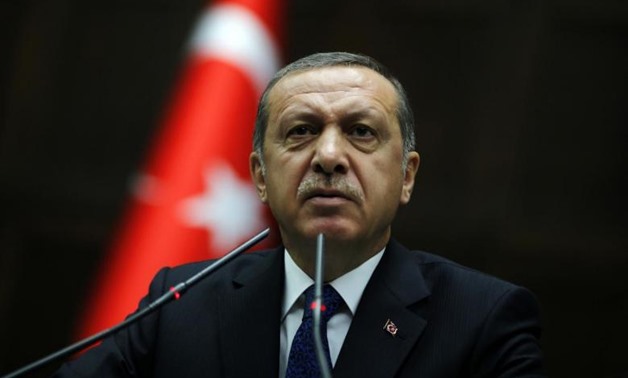In an unexpected statement earlier this month, Turkish President Recep Tayyip Erdoğan said his ruling Justice and Development Party (AKP) and coalition partner the Nationalist Movement Party (MHP) were considering a new constitution.
Erdoğan’s announcement, which arrives less than four years after an overhaul of the previous constitution to create the executive presidential system, initially inspired hope. But this was soon replaced by the sense that what Erdoğan actually had in mind was the groundwork for an effective new state moulded by him.
In his initial remarks on Feb. 1, the president spoke of the need to rid the constitution of traces of “military tutelage”, noting the last charters were drafted following military coups, and emphasising that the new one should be “civilian”.
But during a Feb. 10 address to AKP members of parliament Erdoğan sang a different tune: Emphasising the way the current institutional setup set-up hinders the executive presidential system, he called for a new constitution to mark the centenary of the Turkish Republic in 2023.
While his message included the need for cooperation across the political spectrum, Erdoğan went on to take jabs at opposition leaders.
He accused the main opposition Republican People’s Party (CHP) of fascism and supporting terror, while calling its leader, Kemal Kılıçdaroğlu, a “caricature of a poor man”. He then went on to call the pro-Kurdish Peoples’ Democratic Party (HDP) an extension of the outlawed Kurdistan Workers’ Party (PKK) and said the Good Party (İP) was also linked to terror.
At this point, it became clear that Erdoğan had no intention of sitting at the discussion table with anyone else. Instead, he was hoping to use the issue to create division and foment political conflict.
Soon after, several pro-government newspapers said Erdoğan’s plans were the “re-establishment of Turkey”.
Meanwhile, AKP group vice-chair Cahit Özkan announced the new constitution would “rebuild” the country, causing critics to question whether the party was planning to topple the republic.
Özkan later backpedalled on the remarks, saying the planned changes were part of an effort to return to the values embraced during the republic’s establishment.
But another AKP official, Central Decision Making and Executive Council (MKYK) member Ayhan Oğan made interesting remarks to CNN Türk: “Now we are forming a new state, whether you like it or not, the founder of this new state is Tayyip Erdoğan.” The president would go down in history as the second founder of Turkey after Mustafa Kemal Atatürk, he added.
“The party of Turkey’s second independence will be the AKP. Let nobody question our patriotism,” Oğan said, before urging people to question the CHP which “fled from confronting putschists” on the night of July 15, 2016.
There was no follow-up statement from the AKP clarifying Oğan’s eyebrow-raising remarks.
Meanwhile, the head imam of the newly converted Hagia Sophia mosque would also chime in on the discussion. Professor Mehmet Boynukalın took to social media earlier this month to call for the reference to laïcité, the less libertarian form of secularism, to be removed from the second article of the constitution, Noting that the constitutions of 1921 and 1924 include Islam as the state religion and make no reference to laicite, Boynukalın said the republic should return to its “factory settings”.
These remarks from government officials are their allies seek to stir a debate which the opposition says it will not engage in. Instead, opposition parties have repeatedly stressed the need to return to the parliamentary system, a move they say the constitutional reforms aim to block.








































admin in: How the Muslim Brotherhood betrayed Saudi Arabia?
Great article with insight ...
https://www.viagrapascherfr.com/achat-sildenafil-pfizer-tarif/ in: Cross-region cooperation between anti-terrorism agencies needed
Hello there, just became aware of your blog through Google, and found ...